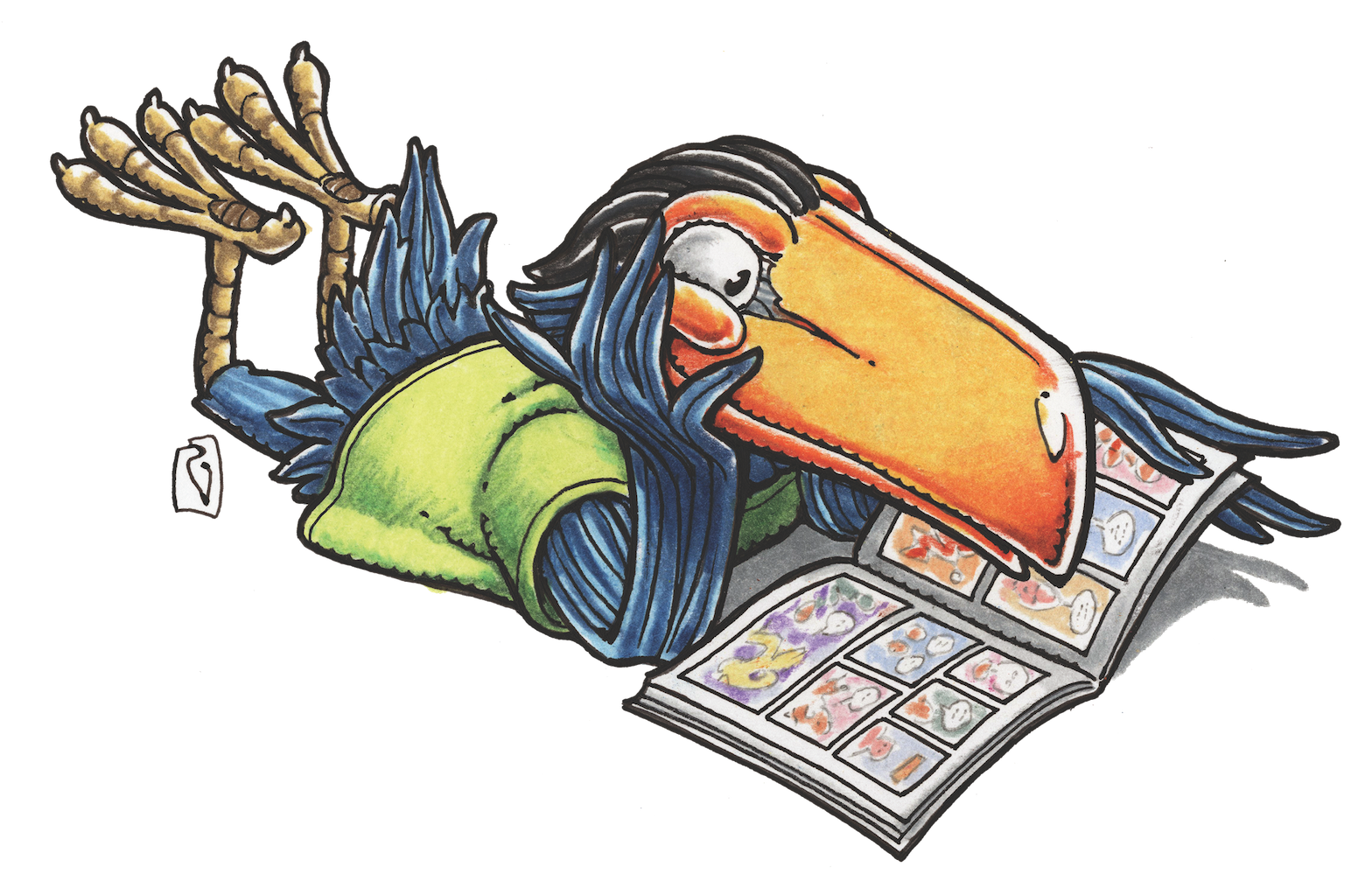MARC BERNARDIN’S DEVOURER OF WORDS
Devourer of Words 040: After the Con


You’ve made contact. Either at a booth, at a party, at the bar, randomly on the convention floor or on the street—you have managed to speak to the editor you’ve been looking for.
You did not, to the best of your recollection, make a fool out of yourself. (Which isn’t necessarily a given.)
And now, it’s a few weeks later. What’s your next move?
DO NOT
Bombard an editor with a ton of pitches. You are still building a relationship and in the very beginning stages of it, too. Don’t be the overly aggressive first date who wants to move way too fast. Send an email reminding said editor of your meeting, preferably with some detail that can serve as some kind of memory beacon. Remember: this editor has met hundreds of people over the course of the convention—help them pick you out from the masses. Be cordial, be funny, be brief.
DO
Ask if you CAN send a pitch or two. No one wants mail they didn’t ask for—or a bunch of attachments presuming a green light to pitch when a green light wasn’t given. You don’t need to pretend that you’re not trying to get work—you both understand the nature of the intended relationship—but it doesn’t hurt to get the A-OK to fire away.
DO NOT
Pick up the phone. Seriously. Unless they ask you to. It’s easy enough these days to figure out how to find any editor’s phone number, especially if they work for one of the major publishers. But a phone call is demanding attention they might not be ready to give you and will almost certainly frost the relationship before it even gets started.
DO
Ask what they’re looking for; anything to help guide you during your pitchery. Because that first volley of ideas is incredibly important—and all too often, it’s a shot in the dark. The more you can shed some light on the proceedings, the better it’ll be. (Conversely, ask what they are absolutely not looking for. It might be an easier question for an editor to answer—“We’re not after superhero books”—and will still give you valuable information.)
DO NOT
Send any pitch longer than a page. With the amount of words your average editor has to read in a day, don’t make your pitches part of the problem. Distill your idea down to its most crackly essence. Yes, you have the first 24 issues broken down page-by-page and you know precisely how it’s going to end in five years—but that is too much information for an editor to parse. And parse quickly.
Artists have an advantage in that a good editor can look, very quickly, at a few pinups and three or four pages of sequentials and see if an artist is ready for a shot. Maybe 10 minutes, if not less. You have to make your pitch as close to that as possible. The big idea. The main characters we’re going to follow. The themes. The world. The sentence they’ll want to use to sell it.
You can get all that on a page. You have to.
DO
Send the pitches when you say you will. Ideally, within a day or so of making that second, back-in-the-real-world contact. Don’t give an editor the opportunity to forget about you. Once the window is open, get through it.
DO NOT
Harass them the next day. Or even the next week. Give them time. Remember, not only do they have the day job—which is making sure that comics get to the presses on time—but they have the night job of reading pitches from would-be freelancers. And that is not a thing you want to rush. Again—any reason to not have to deal with you, even if your idea is the next Y: The Last Man, will be enough to delete your email and close all lines of communication. Harsh, but true.
Be easy. Be patient. Don’t be a problem. Catch flies with honey and all that. Don’t be a pest until you have to be a pest—and that’s two weeks after you send your pitches, if you haven’t heard back.
There’s a line I like from The West Wing. It’s during the first season, when President Bartlet’s daughter Zoe is dating Charlie Young, the president’s personal aide. Charlie is being difficult, obstinate even, about secret service complications to the relationship, when someone says, “If it was me, just for now, I’d make sure I was the one guy in her life that was hassle free.”
Marc Bernardin’s Devourer of Words appears the third Tuesday of every month here on Toucan!